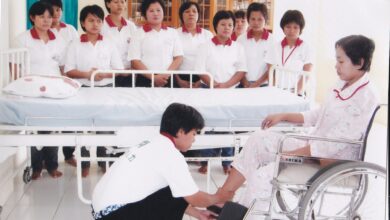Indonesia asks domestic workers abroad to live in dormitories

The head of the National Agency for the Placement and Protection of Indonesian Workers (BNP2TKI) Jumhur Hidayat said that his party had currently asked Middle Eastern countries, such as Saudi Arabia and Malaysia to allow Indonesian domestic helpers (PRT) from abroad to live in dormitories. and not with the employer.
This is done to provide maximum protection for Indonesian Workers (TKI) who work as domestic helpers from cases of violence and harassment that are often committed by employers.
Jumhur said informal TKIs, especially domestic servants, are prone to violence and sexual harassment.
"The placement of informal TKI is no longer live in system tapi live out system. So what we put is not working 24 hours in the house so they work eight hours, overtime and they go home. Of course there will not be cases that often happen to this. The data we have is almost 100 percent, maybe the persecution cases are in domestic cases, "explained Jumhur Hidayat in Jakarta, Friday (1/10).
Recently, an Indonesian domestic helper underwent treatment at the Penang General Hospital, Malaysia due to severe injuries and trauma as a result of alleged abuse and rape by her employer.
Executive Director of Migrant Care, Anis Hidayah said the Indonesian government must first finalize the draft law on domestic workers in Indonesia. Later this can be used as capital to encourage other countries, especially countries receiving TKI, to have the same national regulations.
"At least this is our capital, how to urge other countries, especially destination countries to have the same national legislation, so that we can develop bilateral or even multilateral policies with destination countries based on the principles of protection for domestic workers, "Explained Anis.
Komnas Perempuan's commissioner, Sri Widiyanti, said Indonesia must immediately ratify the International Convention on the protection of the rights of all migrant workers and members of their families or the Migrant Convention 1990. This needs to be done to provide protection for TKI who are abroad. Currently, policies and regulations regarding Indonesian migrant workers have not been able to protect the rights of migrant workers.
The government, said Sri Widiyanti, should not only expect very high foreign exchange from Indonesian migrant workers but must also provide good protection. Komnas Perempuan data states that in 2009, the amount of foreign exchange generated by migrant workers reached 66 trillion rupiah.
"The ratification is actually a form of the attitude of the government and the state, especially in providing protection," said Sri Widiyanti.
Data from the Indonesian Migrant Workers Union states that currently there are around six million Indonesian workers abroad. Eighty percent of them are women (TKW) and work as domestic helpers. (VOA News)



